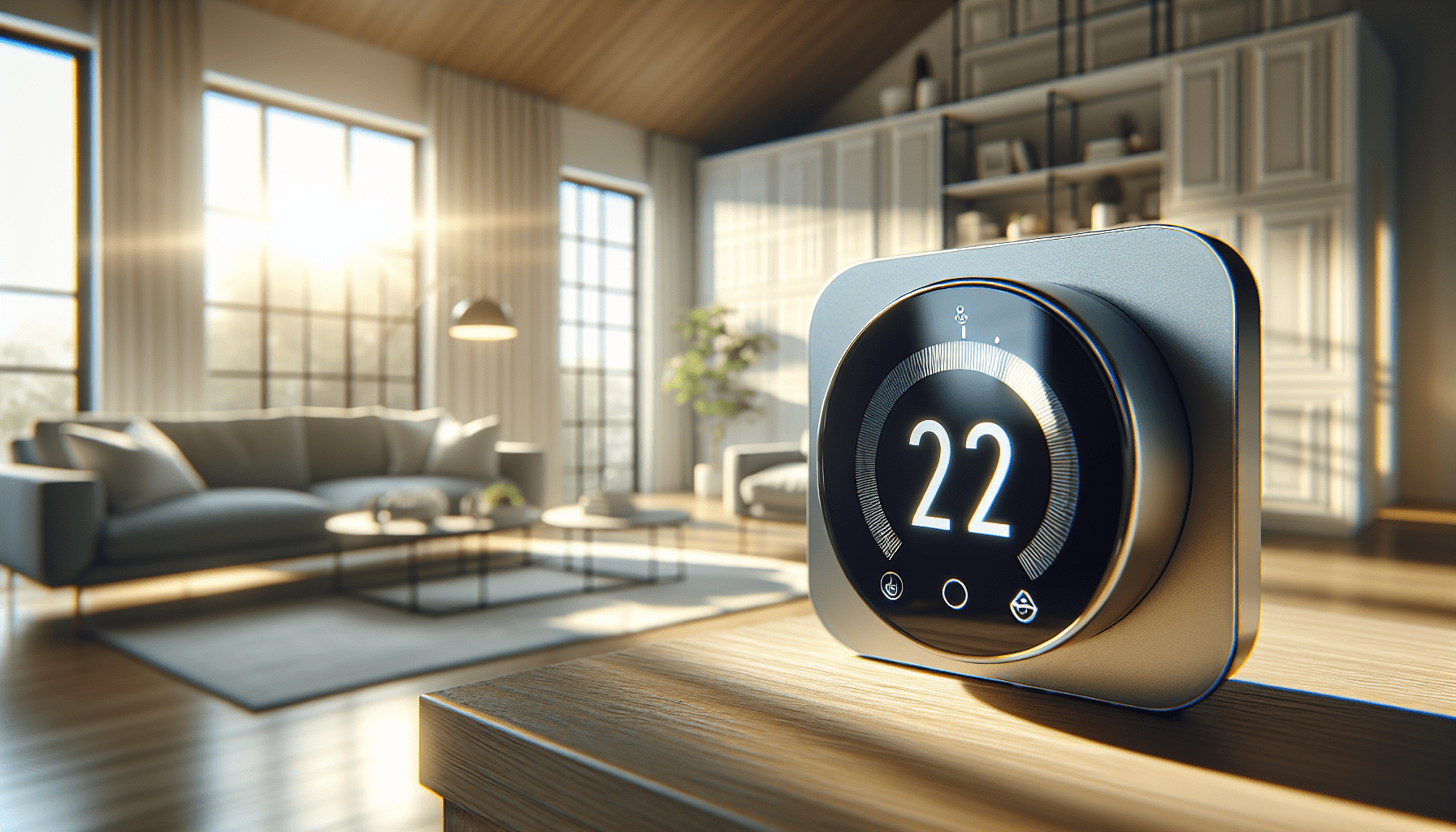As we explore the advantages of incorporating smart home devices into our daily lives, we discover that these innovations are not just about convenience and connectivity. They play a significant role in promoting sustainability. In this discussion, we will delve into how smart thermostats, energy-efficient lighting, and automated systems contribute to reducing our carbon footprint, conserving energy, and fostering an eco-friendly lifestyle. Together, let’s uncover the key benefits of smart home devices for sustainability and understand how they can help us build a greener future. Have you ever wondered how smart home devices could revolutionize our efforts for a more sustainable future? This question is becoming increasingly significant as we seek innovative solutions to combat climate change and foster environmental sustainability.
When we think about sustainability, it’s not just about reducing our energy consumption; it’s about making our homes more efficient, reducing waste, and even making our everyday lives more convenient. Let’s dive into the ways smart home devices can contribute to these goals.

What Are Smart Home Devices?
Smart home devices encompass a wide range of technology interconnected through the Internet of Things (IoT), allowing us to control and automate various aspects of our home environment. These devices can include everything from smart thermostats that adjust based on our preferences, to smart lights that turn off automatically when we leave a room. By creating an interconnected ecosystem, these devices offer considerable potential for improving our homes’ sustainability and efficiency.
The Functionalities of Smart Home Devices
At their core, smart home devices aim to make our lives easier, more comfortable, and more sustainable. Below, we’ve broken down the primary functionalities of these devices:
| Device Type | Functionality |
|---|---|
| Smart Thermostats | Adjusts heating and cooling based on occupancy and user preferences |
| Smart Lights | Automates lighting control, detects occupancy, and adjusts brightness |
| Smart Plugs | Manages power usage by cutting off electricity to idle devices |
| Smart Appliances | Communicates operational status and optimizes performance (e.g., washing machines, refrigerators) |
| Home Energy Monitors | Tracks real-time energy consumption and provides insights for energy savings |
Our smart home devices are the future of domestic convenience.
Immediate Practical Benefits of Smart Home Devices
Let’s start by understanding the immediate practical benefits that smart home devices bring to our everyday lives.
Energy Efficiency
Smart home devices significantly increase our energy efficiency. For instance, smart thermostats can learn our behavior patterns and adjust the temperature accordingly, ensuring that we are not wasting energy heating or cooling an empty house. They can even be programmed to lower the temperature when we go to bed and warm it up just in time for us to wake up, striking a perfect balance between comfort and efficiency.
Cost Savings
The efficient use of energy not only benefits the environment but also translates into tangible cost savings on our utility bills. Smart plugs can cut off power to devices that are not in use, preventing energy waste from standby power consumption. Estimates suggest that the collective use of smart plugs and thermostats can save households hundreds of dollars annually.
Convenience and Comfort
Smart home devices add an unparalleled level of convenience and comfort to our daily lives. Imagine coming home to the perfect ambiance every evening without having to lift a finger because your smart lighting system has already adjusted the lighting based on the time of day and your usual preferences. Or picture waking up to the smell of freshly brewed coffee because your smart coffee maker, synced with your morning alarm, starts brewing at your usual wake-up time.
Environmental Benefits of Smart Home Devices
Beyond the immediate practical benefits, smart home devices play a crucial role in our broader efforts towards sustainability and environmental conservation.
Reduction in Energy Consumption
One of the most substantial benefits is the reduction in energy consumption. By automating and optimizing the use of energy-intensive devices, smart home technology ensures that energy is used only when necessary. This not only reduces our carbon footprint but also lessens the demand on electricity grids, contributing to overall energy conservation.
Decreased Waste Production
Several smart home devices are designed to minimize waste output. Smart refrigerators, for example, can monitor food freshness and alert us when something is about to spoil, helping to reduce food waste. Moreover, smart washing machines can determine the weight and type of clothes, using just the right amount of water and detergent, thereby reducing waste and conserving resources.
Enhanced Resource Management
Smart irrigation systems are another excellent example of how these devices contribute to sustainability. These systems can detect soil moisture and local weather conditions, ensuring that plants and gardens receive the right amount of water. This targeted watering approach prevents overuse and conserves this precious resource.
Long-Term Benefits for Sustainability
While the immediate benefits of smart home devices are quite compelling, the long-term advantages make an even stronger case for their widespread adoption.
Contribution to Smart Cities
Our homes equipped with smart devices can eventually form the foundation of smart cities. Utilizing interconnected systems on a larger scale, smart cities aim to optimize the use of resources, improve the quality of life for residents, and ensure environmental sustainability. The data gathered from smart homes will be instrumental in designing and managing these urban areas.
Increased Lifespan of Home Appliances
Smart devices can extend the lifespan of our home appliances. Many smart maintenance systems can predict potential issues before they become significant problems, allowing for timely repairs and maintenance. This not only saves money but also reduces the waste associated with disposing of and replacing appliances.
Encouragement of Sustainable Behavior
One of the less obvious but equally important benefits is the way smart home devices can encourage and even educate us about sustainable behavior. Real-time data and insights about our energy consumption and waste levels can make us more aware of our environmental impact, leading us to adopt more conscientious habits.

Challenges and Considerations
Though the benefits are numerous, the adoption of smart home devices does come with its own set of challenges and considerations that we must be aware of.
Initial Costs
The initial cost of purchasing and installing smart home devices can be a barrier for some households. However, it’s essential to consider these costs as an investment, given the long-term savings and benefits associated with increased energy efficiency and reduced utility bills.
Privacy Concerns
Security and privacy concerns also come into play. As these devices gather a significant amount of data about our daily habits and routines, ensuring robust cybersecurity measures is critical to protect our privacy.
Compatibility and Interoperability
Lastly, we consider the challenge of compatibility and interoperability between different smart home devices. Not all devices work seamlessly with each other, which can create a fragmented experience and limit the full potential of a smart home ecosystem.
The Future of Smart Home Technology and Sustainability
As technology continues to evolve, the future looks bright for smart home devices. Innovations and improvements will only enhance their capabilities, making them more accessible, affordable, and effective in promoting sustainability.
Integration with Renewable Energy Sources
One exciting development on the horizon is the integration of smart home devices with renewable energy sources. As more households adopt solar panels and other forms of renewable energy, smart home systems could optimize the use of stored energy, prioritizing the use of renewable resources over traditional electricity, further reducing our carbon footprint.
AI and Machine Learning
Advances in AI and machine learning will also play a significant role. These technologies can enhance the predictive and adaptive capabilities of smart home devices, making them more efficient and user-centric. For example, future smart thermostats might learn our preferences even better, adjusting settings based on nuanced behavior patterns that current models might not recognize.
Strengthening Smart Grids
Smart home devices will be integral in strengthening smart grids. These advanced electricity networks use digital communication technology to detect and react to local changes in usage, enhancing the efficiency and reliability of electricity distribution. By seamlessly integrating smart home devices with smart grids, we can achieve an even higher level of energy efficiency and sustainability.
How to Start Your Smart Home Journey
If we are thinking about making our home smarter and more sustainable, here are a few tips to get us started.
Evaluate Your Needs
Firstly, we must evaluate our needs and priorities. Which areas of our home consume the most energy? Do we want to focus on security, convenience, or energy efficiency? Understanding our specific needs will help us choose the right devices.
Start Small
We don’t have to transform our entire home at once. Starting small with a few essential devices, like a smart thermostat or smart plugs, can help us get accustomed to the technology and recognize the benefits. We can gradually add more devices as we see fit.
Ensure Device Compatibility
As we expand our smart home ecosystem, ensuring that our devices are compatible with each other and can be controlled through a centralized platform will give us a seamless experience.
Take Advantage of Incentives
Many local utility companies offer incentives and rebates for installing energy-efficient smart home devices. Taking advantage of these offers can help offset some of the initial costs and make it easier to invest in sustainable technology.
Conclusion
The benefits of smart home devices for sustainability are manifold and compelling. From immediate practical benefits like energy efficiency and cost savings to long-term advantages such as prolonged appliance life and the development of smart cities, these devices represent a significant step toward a more sustainable and environmentally friendly future.
As we continue to innovate and improve smart home technology, their role in promoting sustainability will only grow more critical. With careful planning and smart investments, we can make our homes more efficient, reduce our environmental footprint, and contribute to a more sustainable planet.
Are we ready to embrace the future of smart living? The potential is immense, and the journey to a sustainable home begins with a single smart step.



